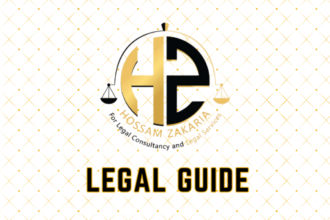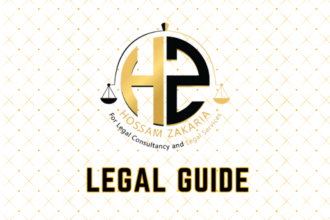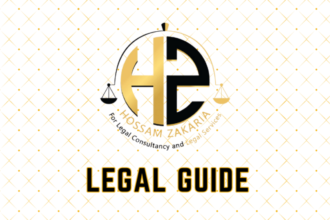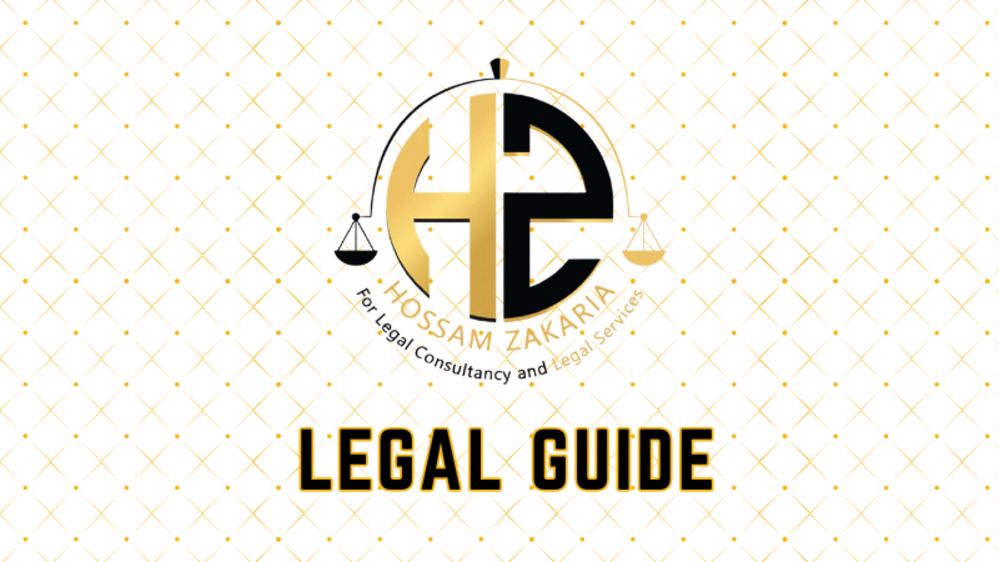Introduction: Navigating Arbitration Law in Qatar for UAE Businesses
Business relationships between the UAE and Qatar continue to flourish, fueled by robust economic ties, cross-border investment, and the recent normalization of diplomatic relations. With commercial activities expanding across both markets, dispute resolution mechanisms stand at the heart of risk management for UAE enterprises operating or partnering in Qatar. Arbitration has emerged as the preferred route for resolving commercial disputes, particularly given its efficiency, neutrality, and global enforceability. However, the intricacies of Qatar’s updated arbitration law—including its interplay with UAE legal practices—require careful analysis and practical legal strategies for effective compliance.
This consultancy-grade article presents a comprehensive legal analysis of Qatar’s arbitration framework, drawing clear links to the regulatory environment in the UAE. We explore how recent legislative reforms—particularly Qatar’s adoption of Law No. 2 of 2017 Promulgating the Civil and Commercial Arbitration Law (the “Qatar Arbitration Law”)—impact UAE-based businesses and investors. The article distills key provisions, regulatory updates, compliance risks, and actionable recommendations, offering a valuable resource for legal counsel, executives, HR professionals, and decision-makers seeking to navigate arbitration with confidence.
Table of Contents
- Overview of the Qatar Arbitration Law
- Key Provisions and Structural Features
- Comparative Analysis: Qatar and UAE Arbitration Laws
- Practical Impacts for UAE Businesses
- Case Studies and Hypothetical Scenarios
- Compliance Risks and Strategic Recommendations
- Conclusion and Forward-Looking Perspective
Overview of the Qatar Arbitration Law
Qatar’s commitment to modernizing its legal infrastructure and enhancing its business environment came to the fore with the enactment of Law No. 2 of 2017—the Civil and Commercial Arbitration Law. This landmark legislation harmonized national arbitration practices with the United Nations Commission on International Trade Law (UNCITRAL) Model Law, aligning Qatar with international best standards for dispute resolution. The Qatar Arbitration Law applies to both domestic and international disputes, cementing Qatar’s reputation as an arbitration-friendly jurisdiction for regional and global businesses.
Official Reference
Law No. 2 of 2017 Promulgating the Civil and Commercial Arbitration Law (hereinafter “Qatar Arbitration Law”) is the cornerstone of all modern arbitration proceedings in Qatar. The law took effect on 13 March 2017 and replaced former outdated provisions of the Civil and Commercial Procedures Law.
Key takeaways for UAE businesses:
- Greater predictability and enforceability of arbitral awards in Qatar
- Alignment with the UNCITRAL Model Law enhances confidence for cross-border investors
- updated framework reduces procedural uncertainties compared to previous legislation
Key Provisions and Structural Features
The Qatar Arbitration Law is notable for its comprehensive approach to defining arbitral processes. Below, we examine the major structural features and actionable legal principles that UAE-based companies must consider.
Scope and Application
The Qatar Arbitration Law is broad in reach, applying to all civil and commercial disputes—whether contractual or non-contractual—unless expressly excluded by law. The law holds for arbitrations seated in Qatar and, under certain conditions, for those held abroad if parties so agree.
UAE consultancy insight: UAE contracting entities should expressly stipulate the seat of arbitration and the applicability of either Qatari or UAE arbitration rules in their agreements. This preemptive step limits ambiguities regarding procedure and jurisdiction.
Arbitration Agreements and Enforceability
The validity and structure of arbitration agreements are central to dispute avoidance and resolution. Under Article 7 of the Qatar Arbitration Law, an arbitration agreement must be in writing—this includes exchanges of correspondence, digital communications, or contract references.
Key Features:
- Strict writing requirement for enforceability
- Extension of arbitration clauses to underlying contractual documents
- Arbitrability of commercial, civil, and certain administrative disputes
Consultancy Note: UAE companies should perform robust due diligence on arbitration clause drafting. Poorly drafted, ambiguous, or non-compliant clauses may result in jurisdictional disputes or unenforceable awards.
Appointment of Arbitrators
The Qatar Arbitration Law grants parties considerable autonomy in appointing arbitrators (Article 11). Where parties fail to agree, the designated court or authority can intervene to make appointments within a month, minimizing delays.
| Feature | Qatar Arbitration Law (2017) | UAE Federal Arbitration Law No. 6 of 2018 |
|---|---|---|
| Party Autonomy | Yes (Expressly Provided) | Yes (Expressly Provided) |
| Court Appointment | Within 1 month | Within reasonable time / expedited for delays |
| Qualifications | No specific legal background required; impartiality & independence apply | Similar requirements; professional qualifications encouraged |
We recommend that UAE firms maintain up-to-date lists of independent, qualified arbitrators familiar with both Qatari civil law and the nuances of cross-border disputes.
Arbitration Procedure and Timeframes
The Qatar Arbitration Law supports party autonomy in determining arbitration procedures, subject to minimum due process standards (Articles 21–30). Procedures default to the Qatar International Center for Conciliation and Arbitration (QICCA) or similar bodies unless specified.
Critical features include:
- Flexibility in choosing procedural rules (institutional or ad hoc arbitration)
- Equal treatment and right of defence for both parties
- Short, definitive timelines for key stages (appointment, submissions, hearings, award delivery)
For UAE businesses, clear procedural roadmaps in contracts minimize tactical disputes, procedural traps, and delay risks.
Arbitral Awards and Enforcement
The enforcement regime is pivotal for effective dispute resolution. Article 34 stipulates that arbitral awards are final, binding, and equivalent in status to court judgments, subject only to challenge on limited procedural or substantive grounds (e.g., lack of jurisdiction, due process violations, public policy conflicts).
Qatar’s accession to the New York Convention 1958 reinforces international recognition and enforceability of awards across signatory states, including the UAE.
Practical insight: UAE businesses can seek direct enforcement of Qatari arbitral awards through UAE courts, provided procedural requirements (such as translation and legalization) are satisfied.
Comparative Analysis: Qatar and UAE Arbitration Laws
| Feature | Qatar Arbitration Law (Law No. 2 of 2017) | UAE Federal Arbitration Law No. 6 of 2018 |
|---|---|---|
| Model Law Basis | UNCITRAL Model Law adopted (with Qatari adaptations) | UNCITRAL Model Law adopted (with UAE-specific modifications) |
| Written Agreement Requirement | Strict, explicit | Strict, explicit |
| Autonomy in Procedure | Permitted, within public policy limits | Permitted, within public policy limits |
| Court Intervention | Limited intervention by Qatari courts | Limited intervention by UAE courts |
| Interim Measures | Court assistance allowed | Court assistance allowed |
| Enforcement of Foreign Awards | New York Convention applied | New York Convention applied |
Key Distinctions
- Qaricourt jurisdiction includes the QICCA (Qatar International Centre for Conciliation and Arbitration), which plays a central role in many commercial arbitrations. The UAE’s main institutions include the DIAC (Dubai International Arbitration Centre), ADCCAC (Abu Dhabi Commercial Conciliation and Arbitration Centre), and others.
- The Qatar law provides more explicit provisions for digital (online) arbitration agreements and hearings—particularly notable in post-pandemic dispute management.
Practical Impacts for UAE Businesses
Common Scenarios Involving Arbitration in Qatar
- Joint venture disputes between UAE and Qatari entities
- Construction sector disputes (EPC contracts, FIDIC agreements with Qatari projects)
- Energy sector arbitration, especially where Qatari law is the governing law
- Cross-border supply chain, agency, and distribution resolutions
UAE businesses operating in or contracting with Qatari companies must:
- Conduct legal due diligence on Qatari law compatibility
- Draft robust, tailored arbitration clauses that account for both Qatari and UAE regulatory nuances
- Engage legal counsel well-versed in both jurisdictions to pre-empt procedural traps, especially regarding notification and enforcement requirements
Key Compliance Considerations
- Choice of Law and Seat: Arbitration agreements should explicitly designate the seat (Doha, Dubai, or another mutually agreed location) and the governing law. Vague or ambiguous wording often leads to costly preliminary disputes.
- Language: Specify the arbitration language (Arabic, English, or bilingual) to prevent translation controversies.
- Enforcement Protocols: Anticipate practical obstacles—such as mandatory document legalization, apostille requirements, or reciprocal recognition rules—at an early stage.
Visual Suggestion
Consider placing a flow diagram visualizing the arbitration process between the UAE and Qatar, highlighting key decision points, timelines, and responsible parties.
Case Studies and Hypothetical Scenarios
Case Study 1: Cross-Border Joint Venture Dispute
Scenario: A leading UAE construction firm enters a joint venture with a Qatari counterpart for a high-profile infrastructure project in Doha. The contract includes an arbitration clause invoking QICCA rules and seat in Doha.
- A commercial dispute arises regarding project delays and cost overruns.
- The UAE firm initiates arbitration in Qatar; the Qatari partner challenges the tribunal’s jurisdiction, citing ambiguity in the arbitration clause.
- QICCA appoints arbitrators, and the tribunal upholds its jurisdiction, referencing the parties’ express agreement and the Qatar Arbitration Law’s clear standards.
- The arbitral award, favoring the UAE company, is recognized and enforced by Qatari courts with minimal delay, demonstrating the system’s procedural strength.
Case Study 2: Enforcement of Qatari Award in the UAE
Scenario: A UAE logistics company obtains an arbitral award in Qatar against a Qatari supplier over contract breach. The supplier has assets in Sharjah.
- The UAE company applies to a UAE court for recognition and enforcement under the New York Convention.
- The UAE court reviews procedural compliance (e.g., award authentication, notification, public policy compatibility).
- After confirming validity, the UAE court orders asset seizure, reflecting the seamless cross-border enforceability enabled by Doha’s legal reforms.
Compliance Risks and Strategic Recommendations
Risks of Non-Compliance with Qatar Arbitration Law
- Unenforceable Agreements:
Non-compliance with the written form or content of arbitration clauses may result in a court deeming the agreement invalid. - Loss of Rights:
Failure to designate the seat/venue or specify applicable rules may lead to losing the intended forum, hampering the defense or enforcement of rights. - Delayed Proceedings:
Poorly defined procedural rules or failure to appoint arbitrators in a timely manner can trigger judicial intervention, eroding the time advantages of arbitration. - Public Policy Conflicts:
Arbitral awards inconsistent with Qatari or UAE public policy face potential nullification at the enforcement stage.
Compliance Strategies for UAE Organizations
- Expert Clause Drafting: Engage lawyers with cross-border arbitration expertise to draft and review arbitration clauses, ensuring compliance with both Qatari and UAE requirements.
- Pre-Arbitration Roadmapping: Define the governing law, seat, language, arbitration rules, and process for arbitrator selection prior to contract execution.
- Due Diligence on Enforcement: Evaluate the counterparty’s likely asset location and court recognition/enforcement records before initiating arbitration.
- Cross-Border Coordination: Coordinate with local counsel in the seat of arbitration and the jurisdiction of enforcement for smooth, coordinated strategy execution.
- Regular Legal Training: Train contract managers and in-house counsel on best practices for dispute avoidance and arbitration readiness in Qatar-related matters.
| Action Item | Status |
|---|---|
| Arbitration clause reviewed by qualified legal counsel | ☑ |
| Seat and rules of arbitration expressly defined | ☑ |
| Proper language and translation protocols established | ☑ |
| Due diligence on Qatari enforcement mechanisms | ☐ |
| Asset tracing and enforcement strategy in potential asset jurisdictions | ☐ |
Conclusion and Forward-Looking Perspective
The rise of cross-border commerce between the UAE and Qatar positions arbitration as a strategic asset for legal risk management. The Qatar Arbitration Law (Law No. 2 of 2017) reflects a commitment to transparent, internationally aligned dispute resolution—mirrored by the UAE’s own federal reforms (notably Federal Law No. 6 of 2018). Together, these frameworks facilitate efficient, reliable, and enforceable arbitration for businesses in both markets.
For UAE businesses, the legal landscape is promising but demands active compliance, strategic contract drafting, and close collaboration with legal advisors. As GCC commercial collaboration intensifies in 2025 and beyond, law firms and in-house teams must stay abreast of further legal developments—monitoring updates from the UAE Ministry of Justice, Federal Legal Gazette, and their Qatari counterparts. Ultimately, the hallmark of success will lie in preventive legal work and a proactive, well-informed approach to dispute resolution.
Best Practice Tip: Remain vigilant for regulatory changes, periodically review standard contracts, and maintain open lines of communication with legal consultants versed in both UAE and Qatari law.
Suggested Visual: Penalty Comparison Chart
Place a clear penalty comparison table or chart summarizing key risks and financial exposures under the Qatar Arbitration Law vs. UAE Arbitration Law.



